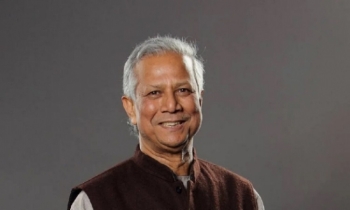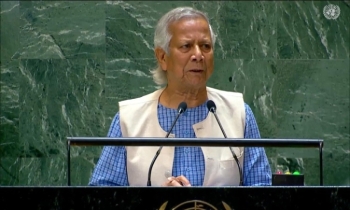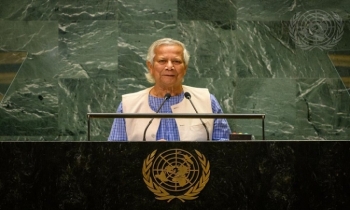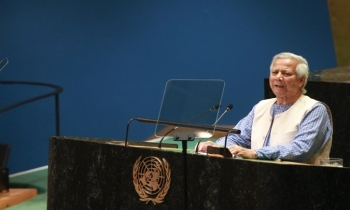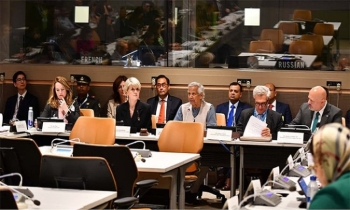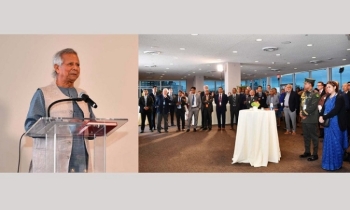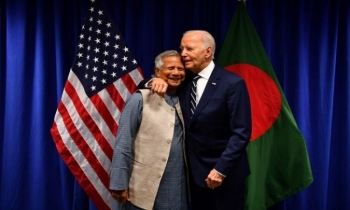Bangladesh moves to join world’s largest trading bloc
Asif Showkat Kallol || BusinessInsider
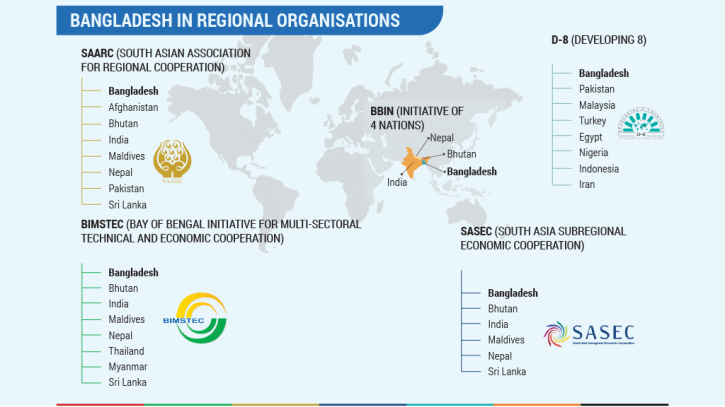
Graphics: Business Insider Bangladesh. This infographic was published with a related report on September 20.
Bangladesh is preparing to join the world’s largest trading bloc, the Regional Comprehensive Economic Partnership (RCEP) to stay eligible for duty-free facilities in the market of one-third of the world economies after it graduates to a developing nation in 2026.
The commerce ministry is also preparing a formal proposal to post it to the RCEP headquarters, conveying the country’s interest in availing membership, according to commerce ministry officials.
A month ago, Bangladesh made the decision to get connected with the RCEP.
With the trading alliance of 15 economies, including China and Japan, entering into force at the beginning of 2022, Bangladesh’s exports to the RCEP nations will not face much trouble until 2026 when the country’s duty-free access to these two major markets will end, according to commerce ministry officials.
The country is enjoying duty-free facilities in New Zealand and Australia, too. But after the LDC graduation, such facilities will no longer be available.
In case Bangladesh does not join the RCEP or sign free trade agreements separately with those countries by 2026, it will lose its competitive edge in apparel exports, especially to China and Japan, while its peer Vietnam as an RCEP signatory will enjoy duty-free access there after the deal takes effect.
Tapan Kanti Ghosh, senior commerce secretary, told Business Insider Bangladesh on Thursday that the proposal to join RCEP is not clear which should be specific .
“We have already sat with the foreign ministry to discuss joining the RCEP. We have adequate time until 2023 to join the world’s largest trading block,” he said.
The senior secretary said it also needs long term research for becoming a member of the bloc because it is a big market place where trade benefits are available. “However, at the same time, we need protection of local industries.”
Bangladesh Trade and Tariff Commission is now doing research on that issue, he pointed out.
On 15 November 2020, the 15 countries – China, Japan, South Korea, Australia and New Zealand; 10 members of the Association of Southeast Asian Nations (Asean): Brunei, Vietnam, Laos, Cambodia, Thailand, Myanmar, Malaysia, Singapore, Indonesia and the Philippines – inked the world’s largest free trade agreement that covers 2.2 billion people with a combined GDP of $26.2 trillion.
The objective of the deal is to lower tariffs, open up trade in services and promote investment to help emerging economies catch up with the rest of the world. The RCEP is especially expected to help reduce costs and time for companies by allowing them to export a product anywhere within the bloc – without meeting separate requirements for each of the countries.
Once ratified by three-fifths of the 15 signatories – six Asean countries and three non-Asean countries in their respective parliaments – the RCEP deal will come into effect in 60 days. Japan, Singapore and Thailand have already ratified the RCEP agreement. The trading alliance plans to launch its operation in January next year.
The concept of RCEP was hatched in 2012 and gained momentum in 2017 when the US walked out of the Trans-Pacific Partnership (TPP), later renamed the Comprehensive and Progressive Agreement for Trans-Pacific Partnership (CPTPP).
The initiative got new motivation arising from the US-China trade war, which had knocked the region’s economy to its lowest in five years even before Covid-19 had broken out.
In November 2019, India was onboard when leaders of 16 nations concluded RCEP negotiations in Bangkok and expected to sign the deal formally in 2020. India later pulled out, citing unresolved issues.


